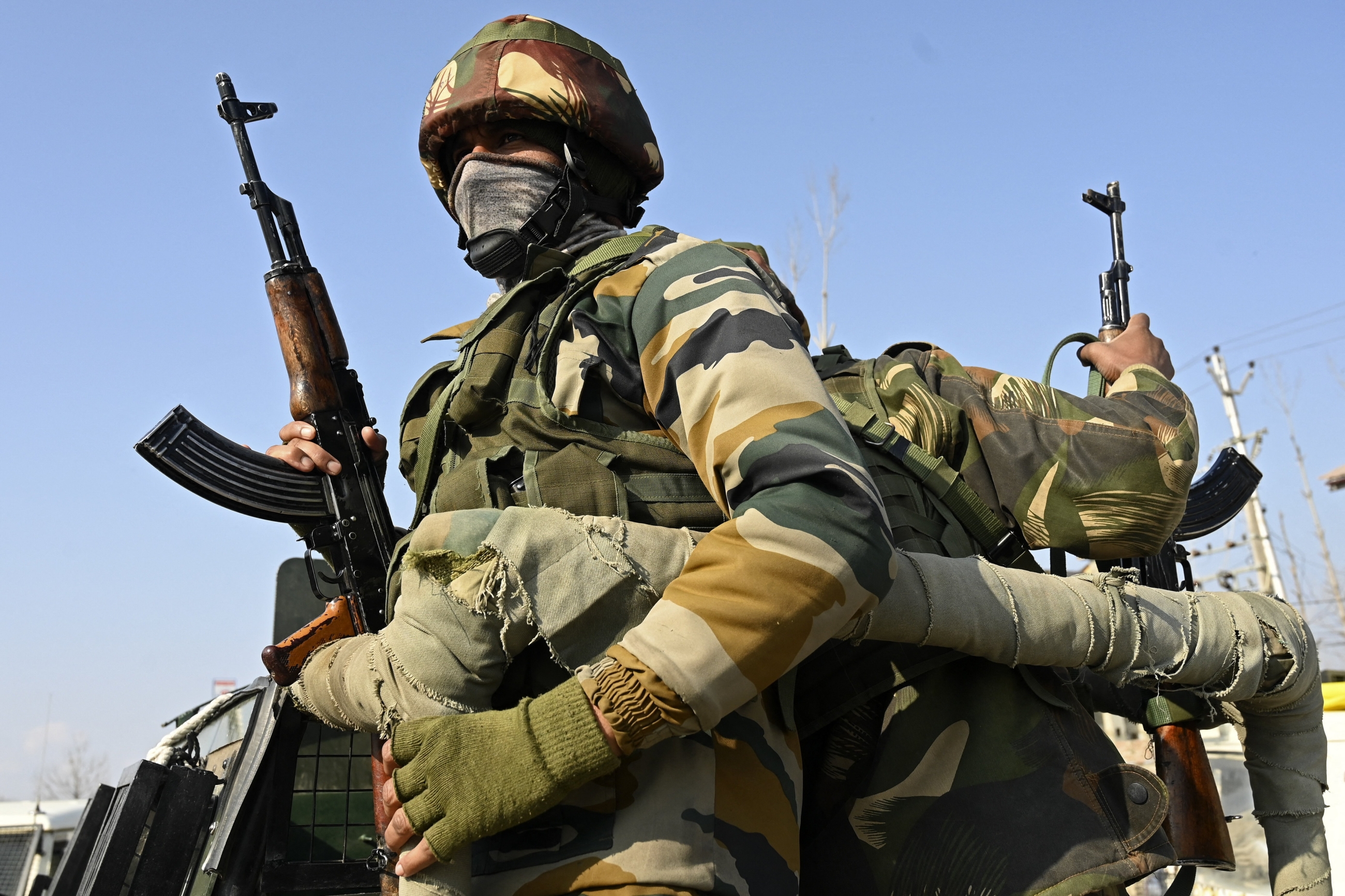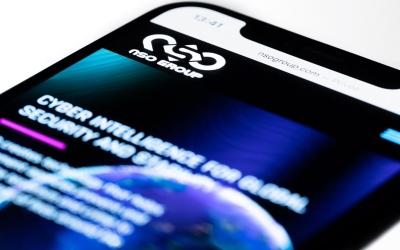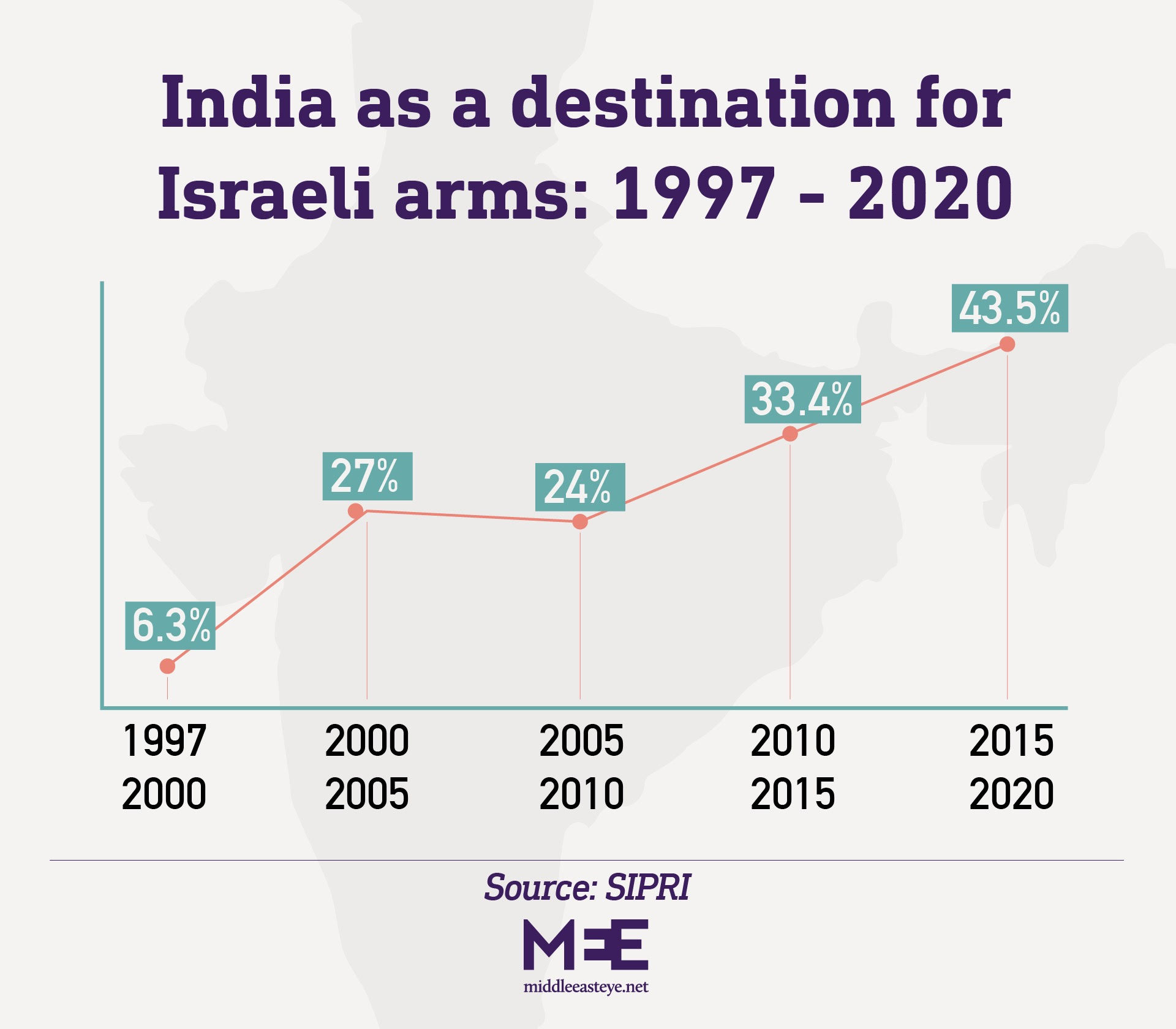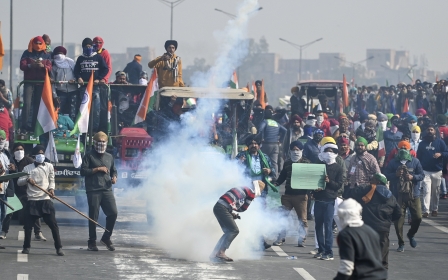India's air force chief visits Israel to boost military ties as Pegasus scandal rages at home

India's air force chief is wrapping up a four-day visit to Israel on Friday, amid mounting outrage in New Delhi over the government's alleged use of Israeli spyware to hack the phones of opposition parties, journalists and activists.
Air force chief RKS Bhadauria arrived in Israel on Tuesday after visiting the United Arab Emirates, where he held meetings with his Emirati counterpart Major General Ibrahim Nasser M Al Alawi, the Indian air force reported.
"As strategic partners, India and Israel enjoy strong, multi-dimensional ties, an important pillar of which is defence cooperation & military level exchanges," the Indian air force said in a statement on Twitter.
"Both sides will discuss enhancement in the depth and scope of bilateral exchanges between the two Air Forces," it added.
While in the UAE, Bhadauria and Alawi held wide-ranging talks to strengthen the relationship between the two countries, the Indian air force said.
New MEE newsletter: Jerusalem Dispatch
Sign up to get the latest insights and analysis on Israel-Palestine, alongside Turkey Unpacked and other MEE newsletters

India has close strategic and military ties with both countries. Last year, India welcomed the UAE's decision to establish diplomatic ties with Israel, a deal which shattered a longstanding Arab consensus that there should be no normalisation with Israel until it reaches a comprehensive peace deal with the Palestinians.
The Palestinian leadership expressed dismay over the deals, which it sees as a betrayal of Palestinian goals for statehood.
Bahrain, Sudan and Morocco all followed suit, in deals that failed to address the Palestinian issue or Israel's military occupation of the West Bank and its settlement expansion.
Prior to Bhadauria's visit to Israel, Indian media reported that his trip would culminate in an agreement to upgrade India's Israeli-sourced Heron drones. Sources told The Print that the Israeli air force would upgrade India's drones, allowing them to make longer surveillance missions and conduct precision strikes.
Israel has long been assisting India with its surveillance and intelligence-gathering instruments. In 1999, Israel provided the IAF with Unmanned Aerial Vehicle (UAV) "Searcher" and surveillance systems during the Kargil war with Pakistan.
Later, Israel provided surveillance and military hardware, including drones and surface-to-air missiles. In 2017, under former Israeli Prime Minister Benjamin Netanyahu, the relationship was upgraded to "strategic partner level".
Pegasus scandal rages at home
Bhadauria's visit comes just weeks after a consortium of media organisations reported that 50,000 phone numbers had been earmarked for potential surveillance by the military grade Pegasus software, sold by Israeli company NSO Group to clients around the world.
According to the Pegasus Project, 2,000 phone numbers were located within India or in Indian-held Kashmir, with the online publication The Wire identifying 161 people, including 40 journalists, who were targets or potential targets for surveillance by Pegasus.
Since the scandal broke, the Indian government has refused to conduct a probe, let alone a parliamentary debate over the role the Indian state may have played in the potential spying on thousands of citizens.
After a series of petitions, the Supreme Court said on Thursday that it would conduct hearings on the matter, with a view towards potentially opening a probe.
Achin Vanaik, a Delhi-based writer and social activist, told Middle East Eye that there was overwhelming circumstantial evidence that the Indian government bought the spyware from NSO with the Israeli government's assent.
Though NSO's client in India is yet to be confirmed, the military-grade software is only sold to governments, placing Narendra Modi's government under heightened scrutiny. Neither the Indian government nor NSO has denied working with each other.
Modi's administration has repeatedly deflected attention away from the issue and NSO has refuted accusations that its software has been misused, claiming it only sells the technology to "vetted" governments.
Raman Jit Singh Chima, the Asia policy director of Access Now, a global digital rights organisation, told the Financial Times that of all the democracies his organisation was tracking, they were "most concerned by the surveillance impunity problem in India".
Part of the problem is that only a fraction of Indians have heard of the Pegasus scandal. According to a poll conducted over 12 states, just 15 percent of Indians may have heard of the saga.
The other problem, according to Apoorvanand, a professor at the University of Delhi, is that Modi's administration has little regard for public opinion.
"This government is very confident it has constructed its own 'public'," Apoorvanand told MEE. "And its public does not care about what others think about its government. When we say public opinion, it's irrelevant when it comes to the present Indian condition."
Vanaik said the lack of impunity means Modi's government will simply ride out the storm, which will have "no serious impact on the foreign policy behaviour of western and other friendly governments towards India, and New Delhi knows this".
Suchitra Vijayan, author of Midnight's Borders: a People's History of Modern India, told MEE that Bhadauria's decision to visit Israel so soon after the Pegasus scandal highlighted Modi's defiance amid the crisis.
"It's clear that the idea of political accountability, even as a performance, is now absolutely gone in India," she said.
Meanwhile, Apoorvanand said that while opposition parties were raising serious concerns about the government's alleged use of Pegasus, "they were still failing to talk about the centrality of Israel in all of this".
"This organisation [NSO] cannot work without the knowledge of the Israeli establishment, so here is a case where the Israeli establishment is involved in keeping an eye on Indian public personalities, but the government is unmoved and enhancing its military relationship with Israel. This is how this government works."
Middle East Eye delivers independent and unrivalled coverage and analysis of the Middle East, North Africa and beyond. To learn more about republishing this content and the associated fees, please fill out this form. More about MEE can be found here.






